October 25, 2024 | 11:16 GMT +7
October 25, 2024 | 11:16 GMT +7
Hotline: 0913.378.918
October 25, 2024 | 11:16 GMT +7
Hotline: 0913.378.918
On the afternoon of October 24, Deputy Minister of MARD, Mr. Phung Duc Tien met with the Japan International Research Center for Agricultural Sciences (JIRCAS) to discuss proposals for the next phase of the 1 Million hectare high-quality, low-emission rice project linked to green growth in the Mekong Delta region.
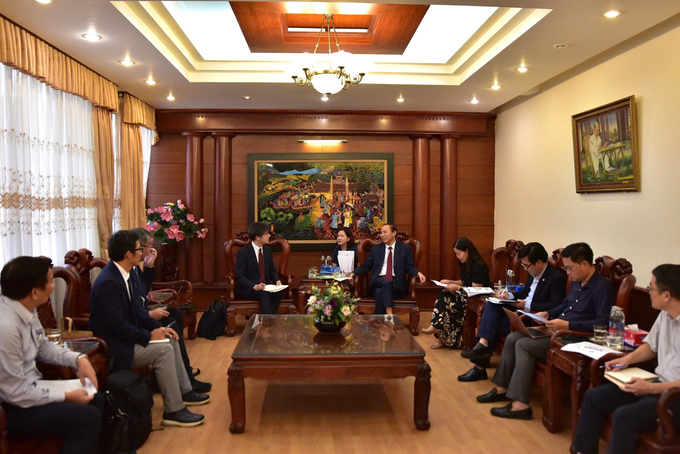
Deputy Minister of MARD, Mr. Phung Duc Tien met and worked with the Japan International Research Center for Agricultural Sciences (JIRCAS). Photo: Kieu Chi.
During the meeting, Deputy Minister Phung Duc Tien emphasized the strong relationship between Vietnam and Japan, particularly in agriculture.
He expressed gratitude to Japan for its long-term cooperation with Vietnam in rice blast disease research. He highlighted that Vietnam has been heavily impacted by rice blast and has invested significantly in training high-quality human resources for agriculture and rice production. Those trained have been contributing positively to the development of the agricultural sector in Vietnam.
Mr. Funaki Yasuro, Director of the Social Sciences Division (JIRCAS), said that Japan also faces challenges from climate change and has developed a sustainable agricultural strategy. Japan is implementing the "Green Asia" project to promote sustainable agriculture in Asian countries.
JIRCAS has proposed to MARD a solution for a new green revolution in Vietnam's agricultural sector, focusing on three main objectives: minimizing chemical pesticides usage, reducing the amount of chemical fertilizers, and saving irrigation water. JIRCAS hopes to implement these solutions in the upcoming phase in Vietnam to develop sustainable and environmentally friendly agriculture.
According to Obara Mitsuhiro (JIRCAS), rice blast is one of the transboundary diseases in tropical monsoon Asian regions. The use of chemical pesticides to combat rice blast increases financial burdens and affects human health and the agricultural ecosystem.
In 2017, a rice blast outbreak caused significant damage in Ha Tinh province, highlighting the importance of choosing disease-resistant rice varieties to minimize chemical pesticide use.
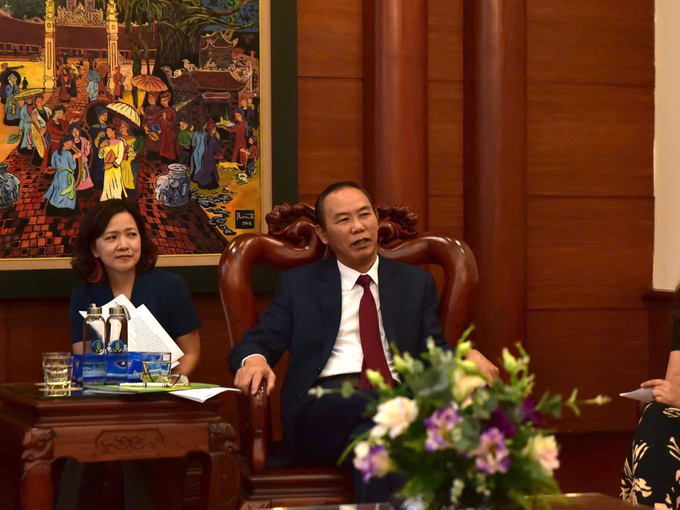
Japan and Vietnam have established a long-term cooperative relationship in research and training in the field of agriculture. Photo: Kieu Chi.
Regarding reducing water usage, selecting rice varieties resistant to acidic soils is critical, especially in the Mekong Delta. Furthermore, JIRCAS aims to transfer to Vietnamese scientists rice strains that integrate new genes, not only tolerant to adverse conditions but also suited to Vietnam’s climate and soil, while helping to reduce greenhouse gas emissions.
Deputy Minister Phung Duc Tien emphasized that Vietnam is focusing on developing ecological agriculture and green economic growth, which aligns with global trends and international commitments, including achieving net-zero emissions by 2050.
Vietnam is strongly committed to collaborating with international partners, including JIRCAS, to enhance the competitiveness and production capacity of its rice sector.
Deputy Minister Phung Duc Tien assigned the Department of Science and Technology to lead and coordinate with the Department of International Cooperation to closely and effectively work with JIRCAS in the future.
Based on the solid cooperation established, both sides will continue to strengthen collaboration in addressing climate change, aiming for sustainable agricultural development. The cooperation between the two countries will not only focus on research but also extend to human resource training to enhance capacity in the agricultural sector.
Translated by Kieu Chi
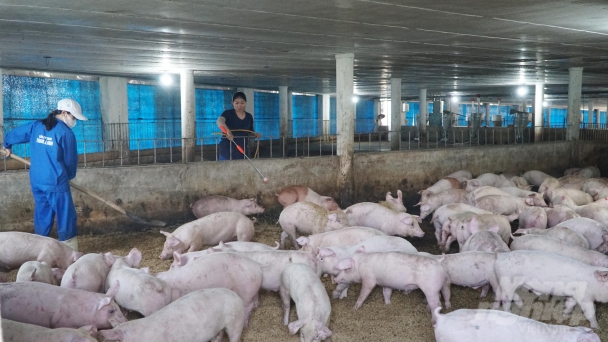
(VAN) Having a closed procedure from cold barn to half cement - half biological bedding floor, Trang Linh Co., Ltd is taking the lead in bio-safe livestock farming in Ba Ria - Vung Tau.
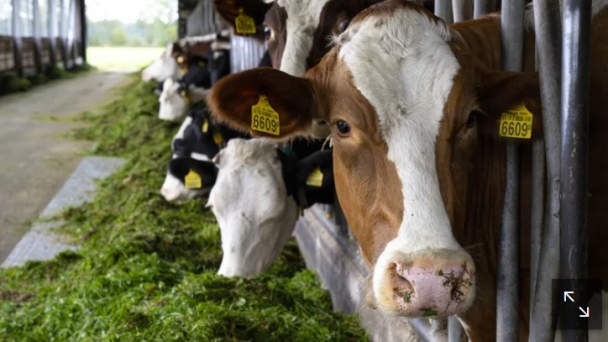
(VAN) Dutch farmer Jos Verstraten scaled a ladder up the side of a large slurry tank resembling a circus tent and peered at its contents, which gave off an overpowering smell of ammonia.
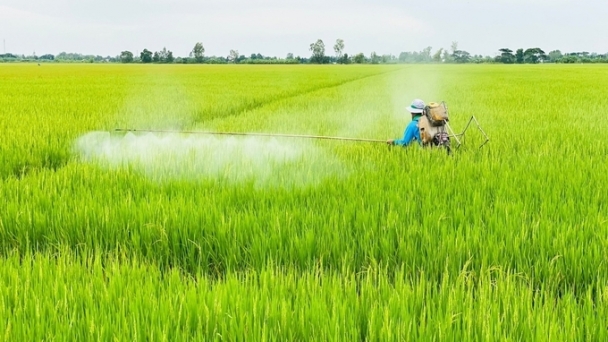
(VAN) On October 24, the 46th ASEAN Ministers on Agriculture and Forestry (AMAF) meeting was held online, chaired by Myanmar.
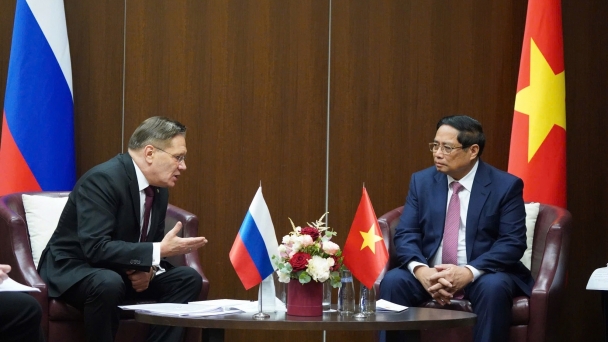
(VAN) On the morning of October 24, Prime Minister Pham Minh Chinh received Mr. Alexey Likhachev, General Director of the Russian National Atomic Energy Corporation (Rosatom).
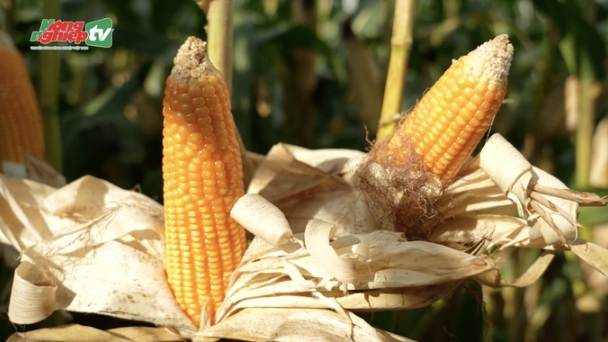
(VAN) Over the years, insect-resistant corn varieties have produced high yields, helping farmers reduce the effort and cost associated with pesticide spraying, while also minimizing health risks.

(VAN) The orientation of Ba Ria - Vung Tau's agricultural sector is to mechanize the livestock industry, creating a solid 'shield' to protect livestock from disease risks.